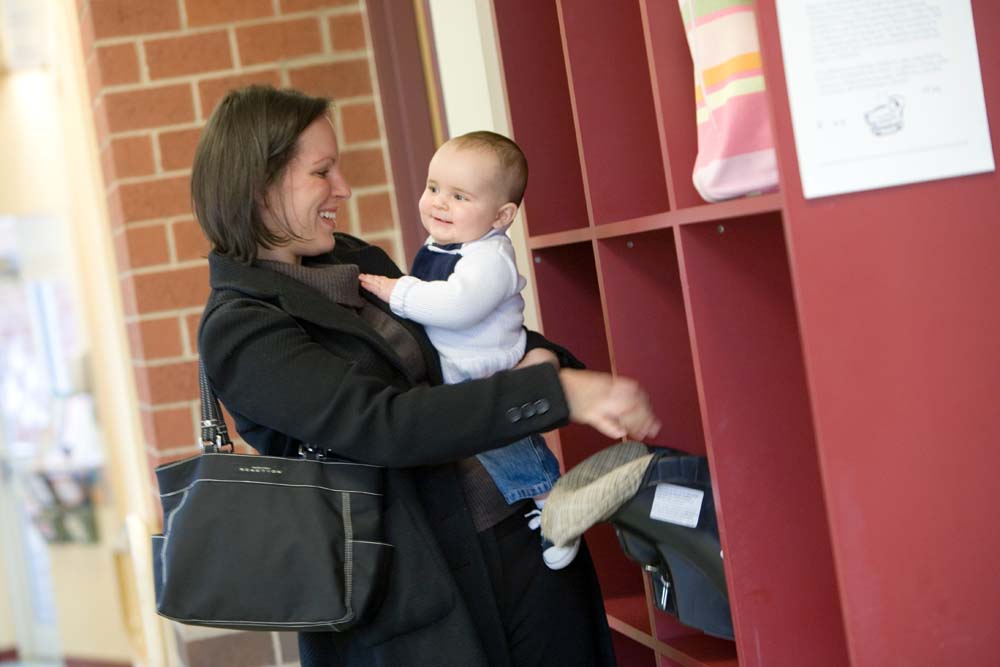Becoming a parent and welcoming one baby is a life changing event. The news of two heartbeats in the womb typically fills us with excitement, anticipation and worry. Many thoughts may flood our minds when having twins: Will our babies be healthy? How will we nurture and care for twin babies? How to feed two babies at once? What if they're identical and I cant tell them apart? How can we possibly run after two toddlers? How can we be fair and even-handed when dealing with sibling squabbles?
Parenting twins presents a multitude of joys and challenges. It means welcoming two new family members when you were initially anticipating one. It also means having two babies to feed, burp, put to sleep, diaper, play with, coo at, worry about, and, of course, love. Parenting twins in the early years is wonderful and can also be physically and emotionally exhausting. However preparation, parenting, education and the loving support of family and friends can help you understand how to best care for your twin babies and yourself.
What to Know About Having Twins
The fact that twins have been together since conception presents many advantages for the siblings. For example, twins often learn to sleep through noise and movement and quickly understand they must wait to have their needs met. Twins may exhibit less separation anxiety because they have a constant companion. The bond that twins form creates comfort as they move through many of life's transitions together such as being left in the care of babysitters or entering the world of child care. In the early years of infancy, toddlerhood and early childhood, twins can benefit from this ability to learn from each other.
Although each twin finds comfort in the other and may have a lot in common, parents should understand that each child is an individual. Twins are two separate beings and should be viewed as such from day one. Although their emotional bond to each other is to be treasured, each child is a unique being with a natural drive to fulfill individual potentials. Like all siblings, twins each have different temperaments, needs, desires and abilities and they will argue, fight, hug, comfort and love each other. There may even be some sibling rivalry.
Tips for Parenting Twins
- Ask for parenting help. Be it a single parent or two parent family, reach out to your family, friends and neighbors for support when raising twins. Often people welcome being invited to cuddle, feed or play with a baby. Everyone likes to feel needed. Your friends or family will enjoy being invited over to be with the babies so you can take a nap.
- Develop routines and schedules. A structured and predictable routine helps every family member function to their optimal ability. The daily routine helps your children feel safe because they know what is going to happen and what to expect next. Getting babies on the same sleep schedule, when possible, allows you a few minutes to not run at full speed. As the twin babies grow, they will also be accustomed to following a routine.
- Connect with other parents of twins. Parents of twins can provide a wealth of support to each other by sharing their knowledge and experiences on raising twins. Most communities have parents of twin clubs. Local clubs can be accessed through the National Organization of Mothers of Twins.
- Research possibilities. It is possible to breast and/or bottle feed your twins at the same time. Babies can be simultaneously bottle fed by using pillows to prop them up in your lap or next to you. Breastfeeding twins is also possible with pillows specifically designed to prop a baby. Burping two babies can be challenging as it should take place naturally right after each one has been fed. This might be a good time to ask for help.
- Treat each twin as a unique individual. Regarding twin babies as unique helps each baby become aware of his/her own individuality and develop his/her own identity. When parenting twins, there may be the tendency to always think of them as a unit. Respect individual differences. Form separate expectations around each child's abilities and interests. Support each child's individuality by referring to each child by name - not as "the twins."
- Plan individual quality time. Plan for quality time alone with each child. Some quality play time activities, such as sitting and talking, sharing a book, playing a game or going to the market, provide the individual attention that children need. The goal is to give each child life experiences that are fun and appropriate for them. Twins have a tendency, especially in the early years, to be very dependent upon each other. Time apart helps develop separate identities and also gives children important one-on-one time with an adult.
- Understand fairness vs. respect for children. Because every child has different needs, being respectful is more important than being fair when raising twins. Parents need not always spend the same amount of time with each child, buy the equivalent gift or treat children in the exact same manner. Respecting the similarities and differences of each child fosters a real and healthy sense of self.
- Consider possessions & twin identity. Possessions help children form a sense of identity. Some separate clothes, toys, books, blankets, etc. reinforce separateness and ownership. Each child needs some possessions that do not have to be shared. This can be achieved by giving each child a special cupboard or space on a shelf. Although young children are not yet able to read, it’s helpful to label the individual possessions with their name.
- Be cautious about making comparisons. Development is a journey, not a race. Parents often compare their child's development to other children of the same age, and it will be particularly tempting to do this with twins. Nonetheless, it is best not to compare twins. Young children are quite perceptive and internalize what they hear. Comparisons can easily discourage a child or create a situation where he/she feels less smart, capable, attractive or loved.
Most importantly, enjoy the ride of raising twins! Reading books and articles about parenting twins and joining parents of twins groups will provide many resources and help alleviate concerns by helping parents better understand the joys and challenges of parenting twins. Armed with knowledge and support, fears become displaced with the recognition that twins are truly a double blessing.
The Work-Life Equation Podcast: Work and Life After Twins
On this episode of the Work-Life Equation: twins! Can you be doubly blessed, and still have a career, and your sanity? Our guest says you can. Jessica Alpert Silber, mom of twins and creator of the WBUR children’s podcast Circle Round, shares her best twin survival strategies, and why surviving two crying babies might just be the best thing for a working mom’s career.
More Tips for Working Families
- Raising twins can be a handful – find helpful tips for parenting twins on our online community.
- Find tips to improve morning routines with babies to create structure and make things easier for twins and yourself.
- Being a parent to twins takes an incredible amount of organization, preparation, juggling and a little bit of daily magic. Get some organization tips for busy families.
- When you're a working dad of a toddler and infant twins, it's bound to get hectic. See what a day in the life of a working dad is like.
- Read Nourish Moms blog post on spending quality time with her child even when she didn't have much free time.





